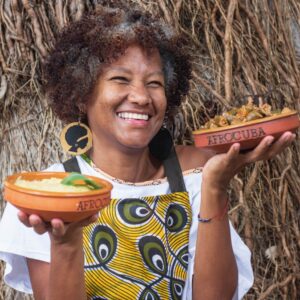
Afro‑Cuban Rituals to Close the Year and Welcome 2026 with Fresh Energy
The end of the year is not just a date on the calendar. In Afro‑Cuban spirituality, it is a threshold — a sacred moment to pause, cleanse, honor what was lived, and consciously open the path ahead.
In Cuba, many of the rituals practiced today are rooted in African ancestral wisdom, carried across the ocean and preserved through generations. These rituals are not about superstition; they are about alignment, intention, and relationship with life.
At Beyond Roots Experiences, we believe that closing a cycle with awareness changes how you step into the next one. That’s why we want to share some Afro‑Cuban inspired rituals you can practice to release 2025 and welcome 2026 with clarity, protection, and renewed energy.









